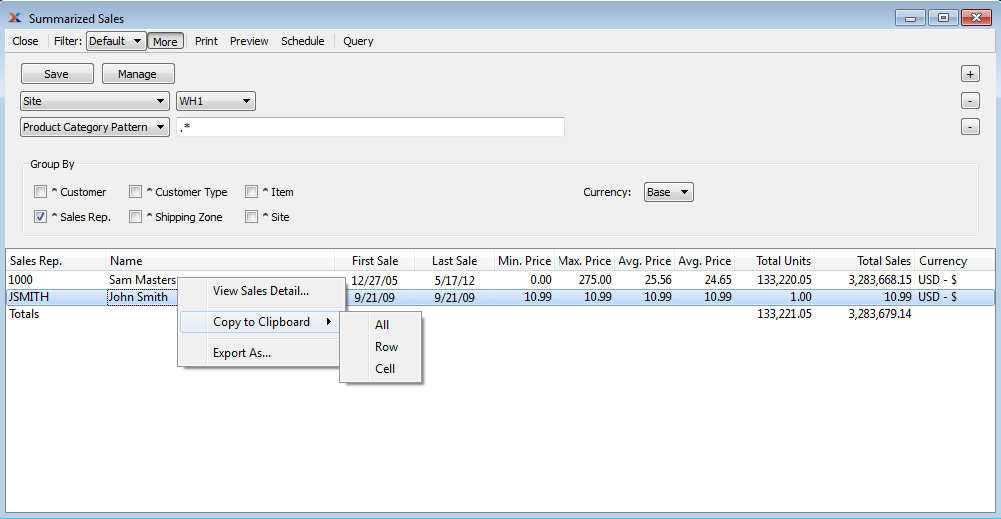
|
xTuple ERP Reference Guide |
The Summarized Sales screen provides several different filters for getting at summarized sales history information. Here are some tips for using this screen:
Be sure to enable all the column headers you want to see in order to take full advantage of the data available on this screen.
Isolate the sales information you're looking for by combining the grouping options with the custom search filter options.
Search for orders using the customer's P/O number.
Prices are normalized to the base currency using the currency exchange rate effective on the invoice date.
Don't forget to save your custom search filters so you and others in your organization can use them for future searches.
To view the Summarized Sales History, go to . The following screen will appear:

The Summarized Sales History screen includes miscellaneous items by default. When comparing results from this report to other sales history reports, be sure to include the miscellaneous items parameter when running those other reports.
The following options on this screen are a supplement to the choices available under the search filter:
Specify how you want the information grouped: by customer, sales rep., customer type, shipping zone, item, or site.
Specify the currency you want to see the results in: base currency or the local currency from the original sales order.
The default filter on the Summarized Sales History screen shows all transactions for the current day. You can build your own search criteria using the following options:
Select a filter from the list of available filters, then select the button to generate search results. Only saved filters will appear in this list.
Select this button to show the parameters underlying the saved filter. To hide the parameters, click the button a second time.
When building a custom query, you have the following options:
Select to add a new parameter to the query.
Select to remove a parameter from the query. This option is disabled for default parameters.
Select to save your filter for future use. Saved filters will appear in the list of available filters.
Select to manage your saved filters. To learn more about managing filters, please see Section 2.1.2, “Search Filters”.